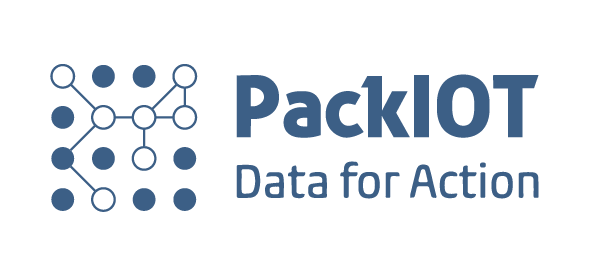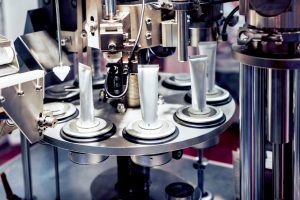By Mariana Costa, Marketing Specialist at PackIOT
You may be wondering, “Why should I do It?”, “Why should I adopt Industry 4.0 and digital transformation in my factory?”, “I can collect data for my company but sharing it might be a risk against my competitive advantages!”.
In this blog post, we will answer all these questions and more by showing you how Industry 4.0 is here to stay in the Flexible Packaging industry.
So, with this in mind, let’s ask the question again: Why should you accelerate digital transformation?
When we talk about Digital Transformation in its full potential we are considering a journey towards a fully connected and transparent value chain, from the suppliers to the brand owners or from the retailers to the consumers.´
We all have expectations regarding each participant of the value chain. For example, we expect suppliers to have the best quality, at the best price and at the right time. But have you ever stopped to think about your daily operation? It’s normal to run after a constant fix-the-machine-and-run mindset to stay on the safe side, it’s human and natural. Nevertheless, there is a price to pay for this safety called inefficiencies. And this price is reflected among the whole supply chain.
Why should you change it if it has been working well enough throughout time? You might be thinking that you need to protect your business, your know-how and the data, because, indeed, data is the new gold and it’s yours.
Well…more or less! Maybe it is worth reframing the way you might be looking at data. Data is indeed crucial and key. However, when we consider the digital transformation process, this data is required to improve the entire value chain or the entire shop floor and add value to it. Not just one part of it. Data is the new gold because it is the secret sauce for continuous improvement in an interconnected system, world and, consequently, Industry 4.0. Industry 4.0 adds value because it offers flexibility and more productivity.
#1 Flexibility
To put it short, flexibility means having a quick reaction time to new orders with the requested volume and quality. And we all know how important this can be in the manufacturing world. The pre-requisite to be successful within a connected production site is to have the right machines with relevant digitalization and automation. A digital factory is the one which, through machine capacities and digital twins, will bring transparency to all the stakeholders. This means, you will be on top of things in real time, enabling a faster reaction time. In the end, this will offer the great possibility to save resources, such as time and money.
#2 Productivity
When we speak about productivity we consider the capacity to deliver the right volume, at the right time for the right costs.
The Internet Of Things (IoT) and Industry 4.0 have a cost and it definitely has to have a ROI. So, how does Industry 4.0 increase profitability in your factory? By being more flexible! You now have all your key steps digitalized and visible in a digital environment. You might even have the capacity to load all these data directly into your machines to get the most out of the material and to help the operators to process the full set up automatically. This saves time, material and costs!
There might also exist some indirect profitability boosters worth considering. Managing all of this at a supply chain level, brings the stock levels down for you and the relevant stakeholders. This alone is a boost for your profitability: reduces the raw material warehouses, the finished material warehouses and all the buffer storages in between the steps of the production process.
#3 Quality
Quality means customers are getting exactly what they pay for.
In a connected shop floor, you can see all the product specification details aligned with each machine parameter, production time, productivity and planned costs of each unit of the product. But can we prove this to the customer? In a digital factory, the “digital twin” makes this much easier and even in real time, if needed.
#4 Sustainability
What does digital transformation do for sustainability?
Sustainability is not only linked to recyclability but also to the sustainable management of resources. When we speak about resources we can consider many different things such as: time, energy, manpower, storing time, raw materials, among others.
By saving waste, energy, double production, storing times or by having the capacity to run a more balanced production (due to more precise planning), 4.0 technologies and a digital factory will help reach higher sustainability goals.



